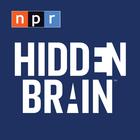
Why No One Feels Rich
介绍: When Keith Payne was in the fourth grade, he realized he was poor. The epiphany came to him in the cafeteria.
"We had a new cashier in the line that day," he said. "And when I got to the cashier's desk she asked me for, I think it was $1.25. That was the first time that anybody had ever asked me to pay for m...
介绍: When Keith Payne was in the fourth grade, he realized he was poor. The epiphany came to him in the cafeteria.
"We had a new cashier in the line that day," he said. "And when I got to the cashier's desk she asked me for, I think it was $1.25. That was the first time that anybody had ever asked me to pay for my lunch because I'd always been on free lunch."
Keith had been blissfully unaware that many of his classmates were paying for their meals every day. But now, he began comparing himself with his peers.
"It's not like I was poorer the day after that than I was before. Nothing objective had changed. But because of that subjective awareness, now everything seemed different to me."
Keith Payne is now a social psychologist at the University of North Carolina at Chapel Hill. He's the author of The Broken Ladder: How Inequality Affects the Way We Think, Live, and Die. He says it's human nature to compare ourselves to others. But that instinct can cause psychological stress.
"We think about ourselves in terms of being on a certain rung with some people above us, and other people below us. Where we think we stand on that ladder tells you a lot about a person's life and their life outcomes."
This week on Hidden Brain, we explore the psychology of inequality.
